Blackmagic's new Pyxis 6K is an ultra-versatile Sony and Panasonic rival for indie filmmakers
6K modular 'box' camera announced alongside Ursa Cine 12K and a 17K beast
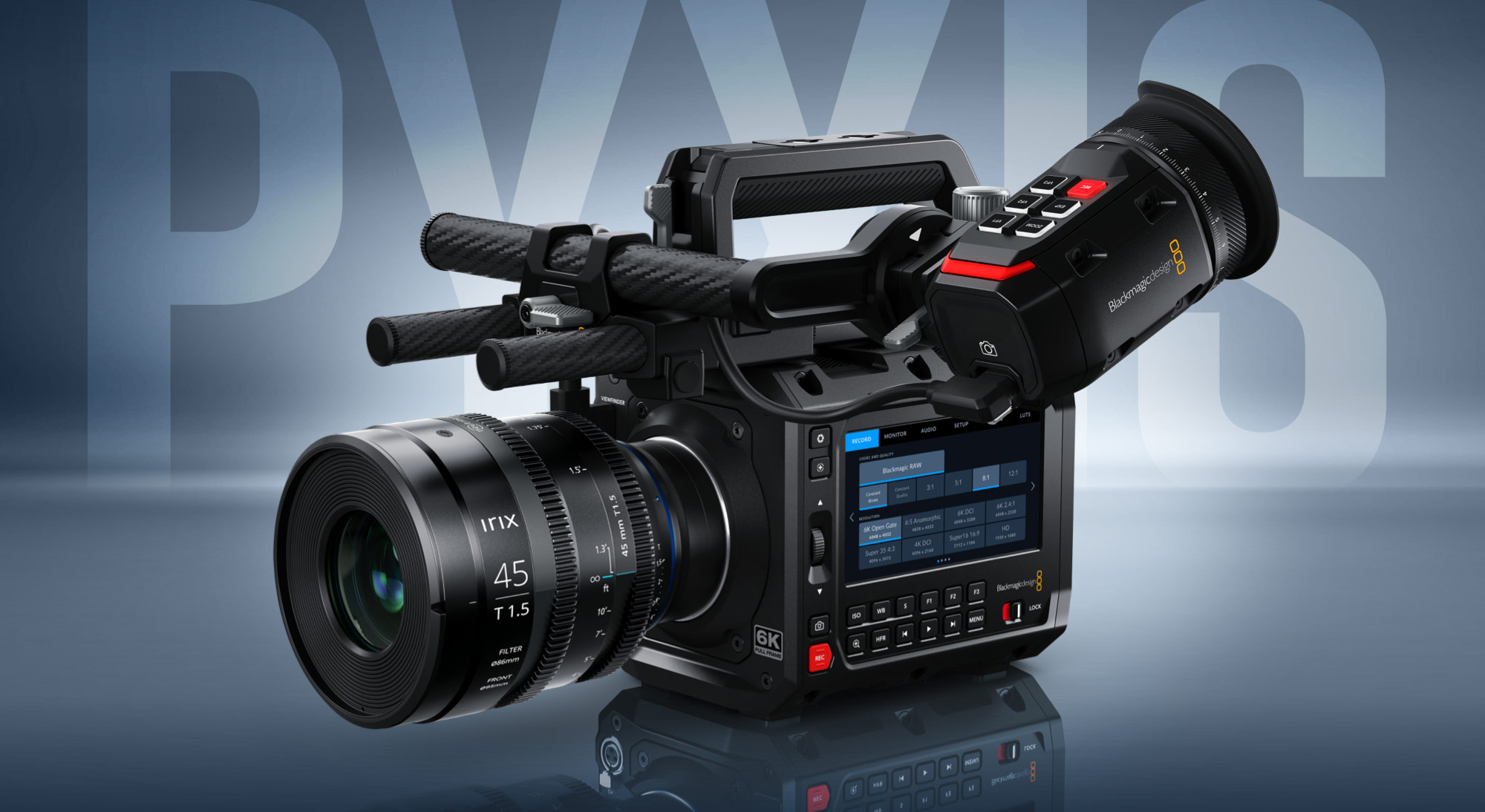
Blackmagic Design quadruple-dropped product announcements at the world's leading broadcasting show, NAB 2024. First, a Sony and Panasonic-rivalling Pyxis 6K modular camera for indie filmmakers; the latest version of its popular video editing platform Davinci Resolve 19 – which we rate as the best free video editor; the superb Ursa Cine 12K for pros; and finally a headline-grabbing concept 17K pro camera with particularly large 65mm sensor – yes, 17K video.
That's a lot of product to cover here and we're going to focus on the sub $3,000 / £3,000 Pyxis 6K, but first it's worth commenting on the 17K camera, which is a higher-resolution version of the Ursa Cine 12K. It isn't ready yet, but is set to rival the hire-only Arri Alexa 65, and is the kind of gear that only a select few people will get to use for real.
That said, Blackmagic regularly prices aggressively – sub $15,000 for the new Ursa Cine 12K boasting 16-stops dynamic range (a first for Blackmagic) is testament to that – and Arri will be shuffling uncomfortably at the news of the upcoming Ursa Cine 17K.
For the rest of us mere mortals, the Pyxis 6K looks like a tempting customizable alternative to the Blackmagic Cinema Camera 6K, which we have dubbed one of the best video cameras for the money.
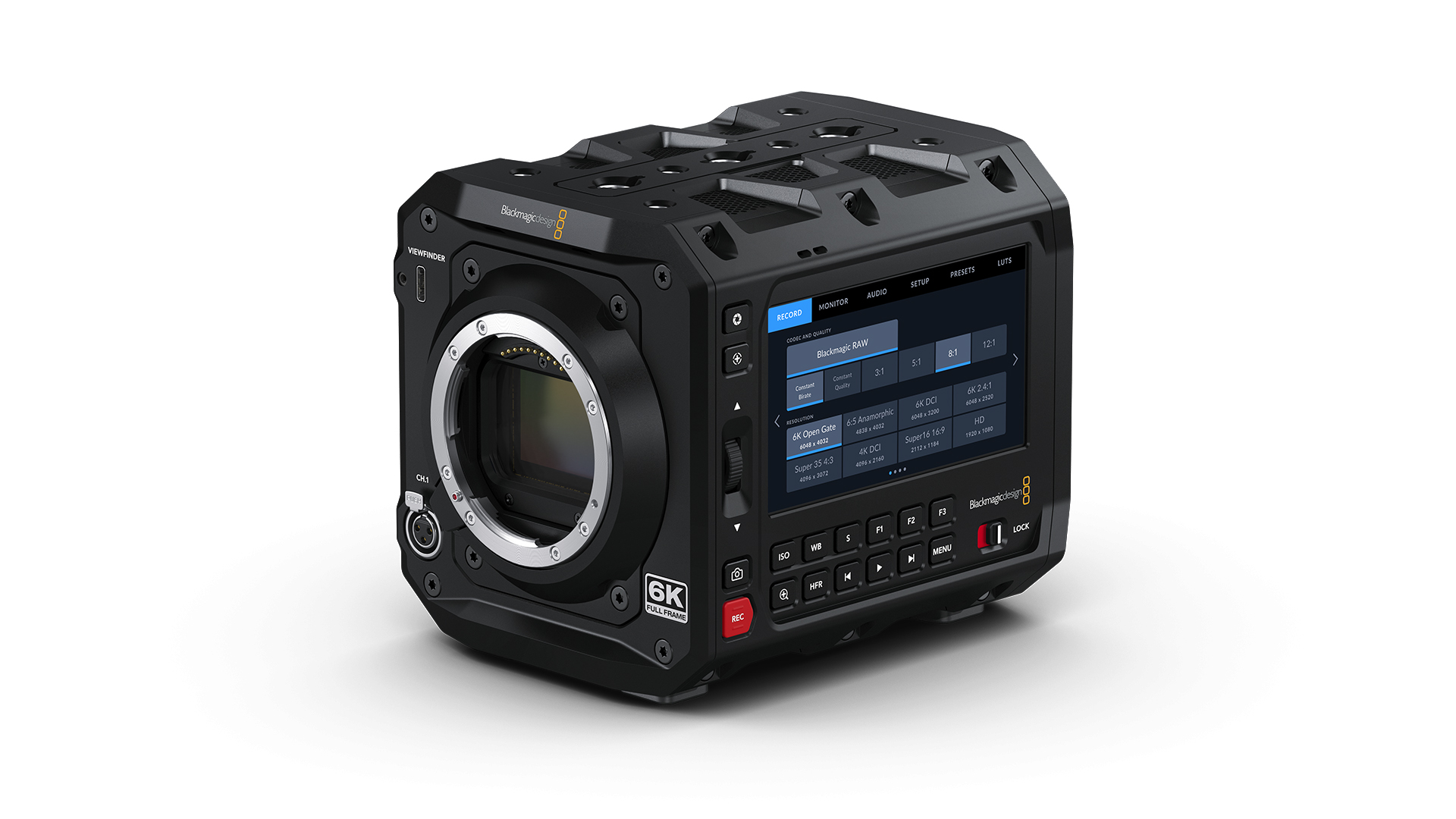
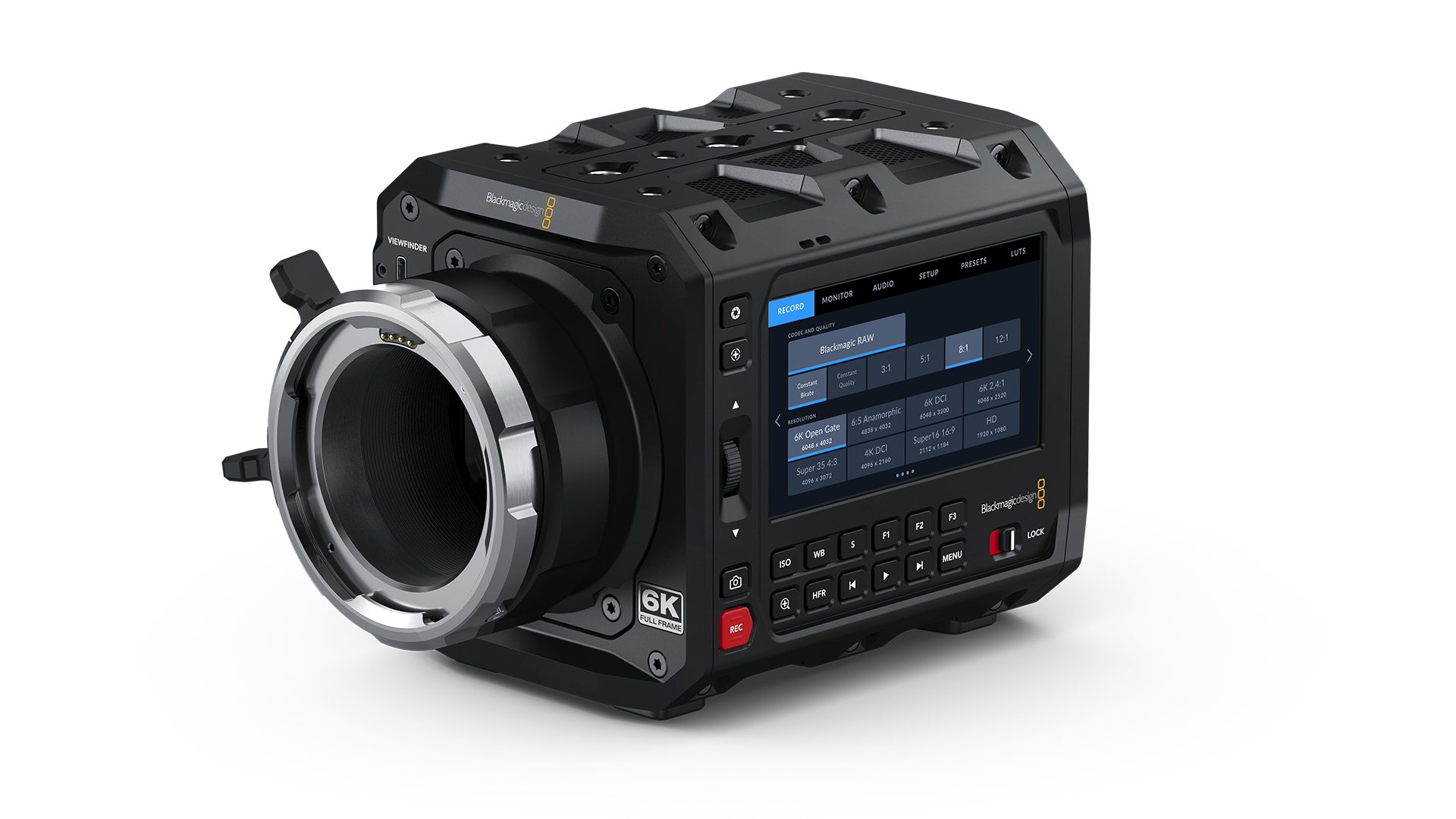
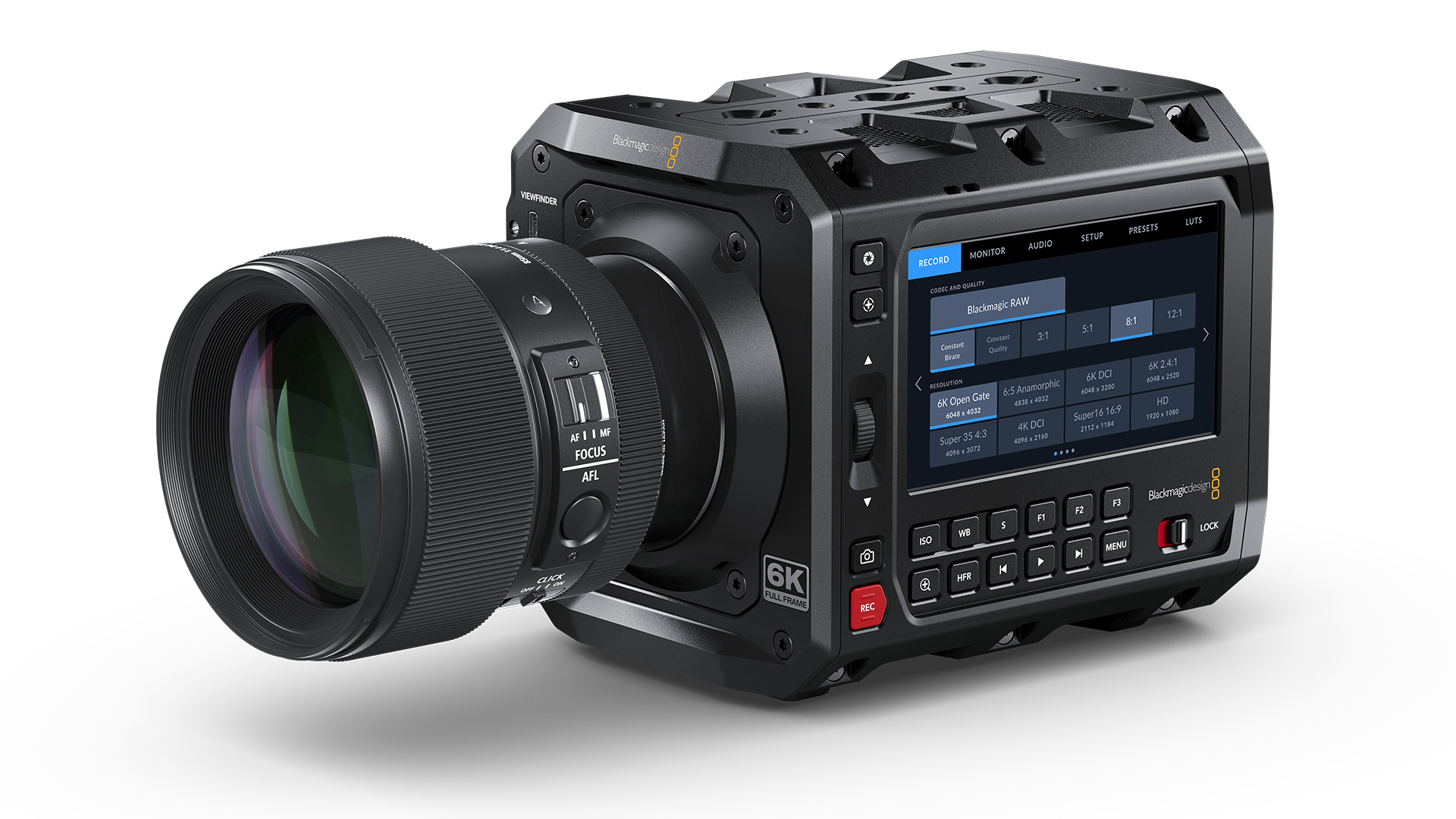
6K video chops to rival Sony and Panasonic
The new Blackmagic Pyxis 6K is a 'box' camera – a modular design previously seen in the rival full-frame Panasonic Lumix BS1H 6K (available for $2,699 / £2,699 at CVP ) that followed up the BS1H with micro four thirds sensor. The concept is to deck out the Pyxis 6K with compatible accessories to create your perfect setup. Before you do that, you select which lens mount version of the Pyxis 6K you'd like, from L-Mount, Canon EF mount, or PL mount options. The latter is a particularly popular mount for cine lenses.
The lightweight and durable CNC machined aerospace aluminum body is decorated with numerous 1/4inch and 3/8inch mounting points and side plates to attach accessories such as mics, handles, external SSDs, screens and viewfinders. Plus, it can easily be rigged to a crane, gimbal or drone.
For filmmakers who often find handling grievances and limitations with complete cameras like the Cinema Camera 6K (below), a customizable box camera makes a lot of sense because it's up to the user to configure the setup how they like. Being able to remove parts that you don't need for certain shoots can slim down and simplify your setup, too.
Get daily insight, inspiration and deals in your inbox
Sign up for breaking news, reviews, opinion, top tech deals, and more.
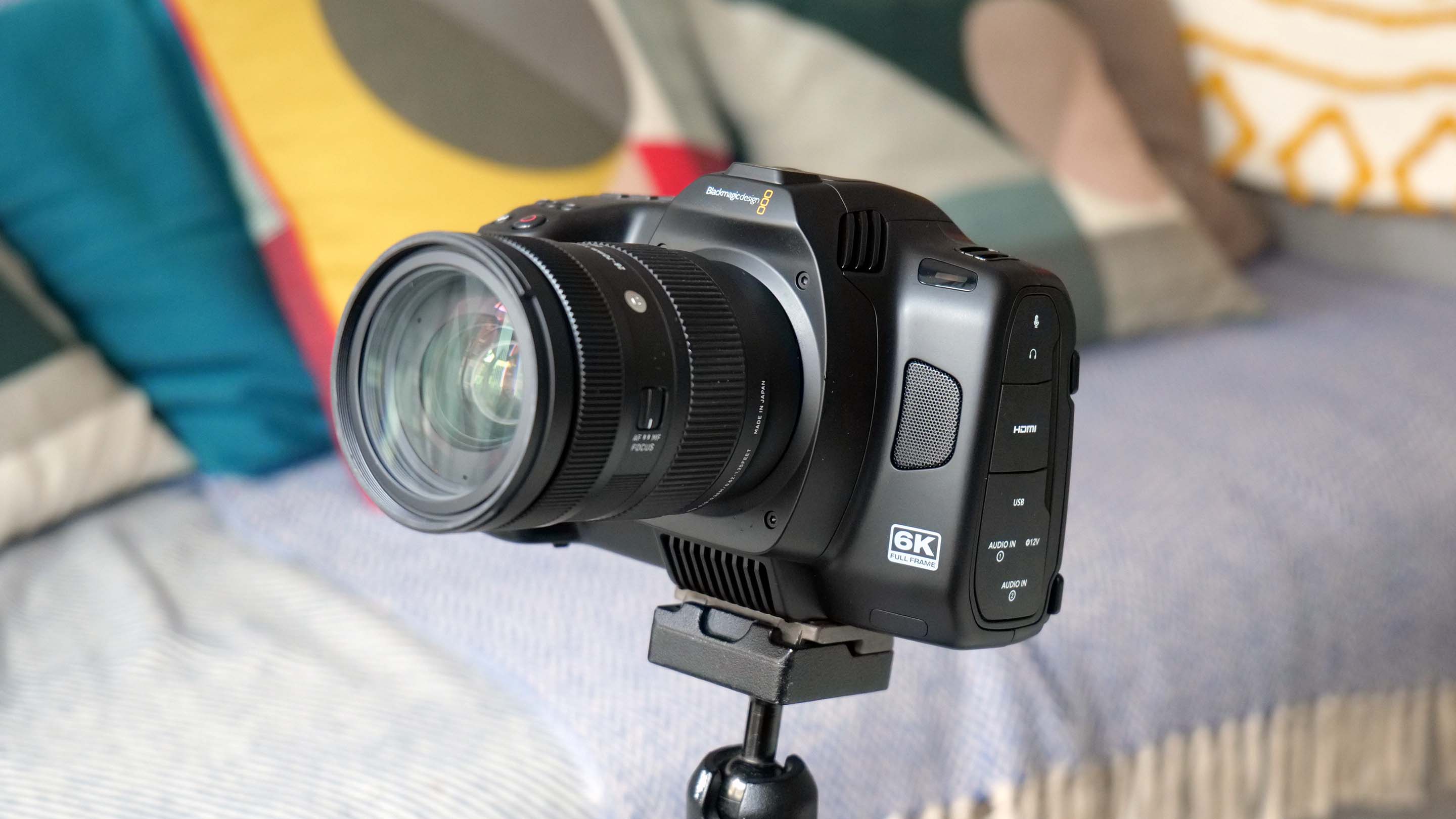
Hardware-wise, the Pyxis 6K's full-frame sensor has a native 6048 x 4032 pixel 'open gate' output up to 36fps, or 2.4:1 aspect 6K video up to 60fps, with up to 13 stops of dynamic range, plus dual native ISO for a clean image whether you're in bright or low light conditions.
You can record video using the popular Blackmagic RAW color profile and simultaneously capture smaller proxy files for a speedier workflow – the latter is a feature that was recently added to the Panasonic Lumix S5 II / S5 IIX through a major firmware update.
There's also a larger-than-normal 4-inch touchscreen with full HD resolution, which is almost as big as some popular external screens from the likes of Atomos. You might not need to opt for an additional screen here, like you do with mirrorless cameras which pack a smaller 3-inch LCD display.
The Pyxis 6K costs from $2,995 / £2,910 (Australia pricing TBC) and it's already available for preorder from CVP. It goes toe-to-toe with the Panasonic Lumix BS1H 6K and is a compelling Sony alternative, too. For more info, please check out the Blackmagic website.
You might also like

Tim is the Cameras editor at TechRadar. He has enjoyed more than 15 years in the photo video industry with most of those in the world of tech journalism. During his time as Deputy Technical Editor with Amateur Photographer, as a freelancer and consequently editor at Tech Radar, Tim has developed a deeply technical knowledge and practical experience with cameras, educating others through news, reviews and features. He’s also worked in video production for Studio 44 with clients including Canon, and volunteers his spare time to consult a non-profit, diverse stories team based in Nairobi. Tim is curious, a keen creative, avid footballer and runner, and moderate flat white drinker who has lived in Kenya and believes we have much to enjoy and learn from each other.